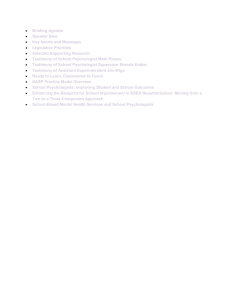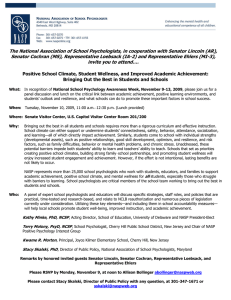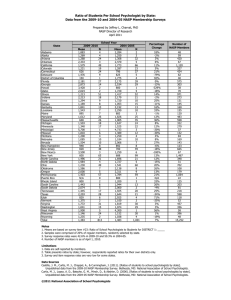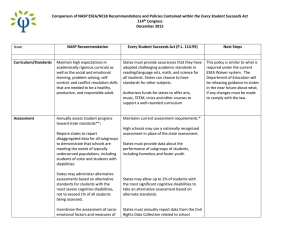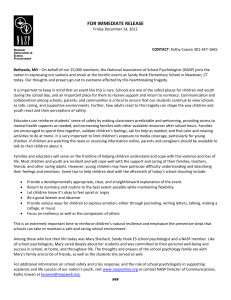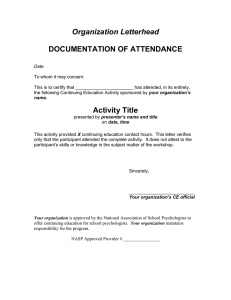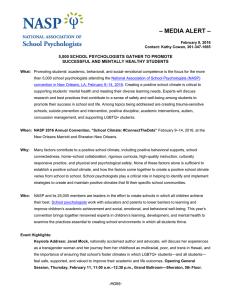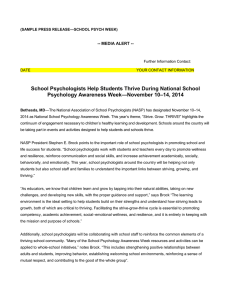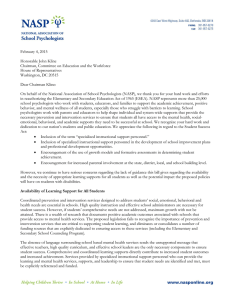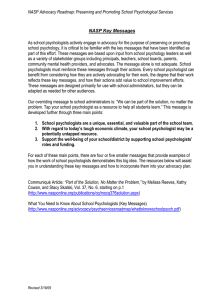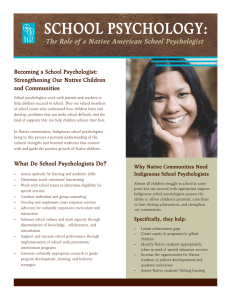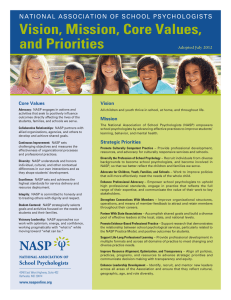Congressional Briefing November 17, 2011
advertisement
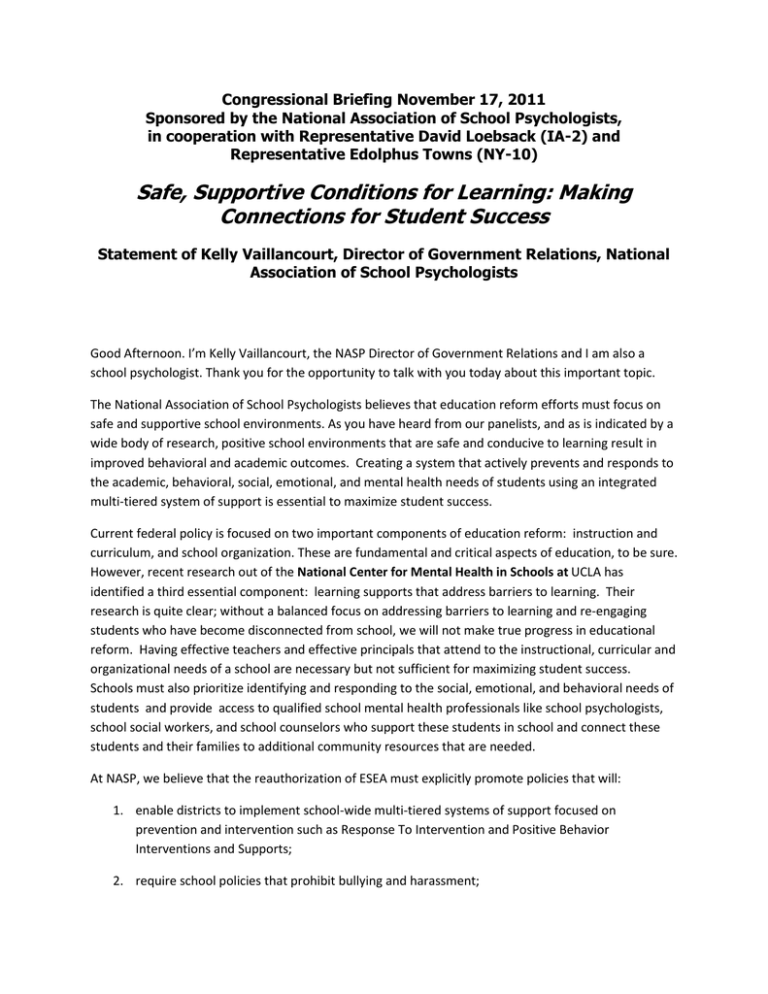
Congressional Briefing November 17, 2011 Sponsored by the National Association of School Psychologists, in cooperation with Representative David Loebsack (IA-2) and Representative Edolphus Towns (NY-10) Safe, Supportive Conditions for Learning: Making Connections for Student Success Statement of Kelly Vaillancourt, Director of Government Relations, National Association of School Psychologists Good Afternoon. I’m Kelly Vaillancourt, the NASP Director of Government Relations and I am also a school psychologist. Thank you for the opportunity to talk with you today about this important topic. The National Association of School Psychologists believes that education reform efforts must focus on safe and supportive school environments. As you have heard from our panelists, and as is indicated by a wide body of research, positive school environments that are safe and conducive to learning result in improved behavioral and academic outcomes. Creating a system that actively prevents and responds to the academic, behavioral, social, emotional, and mental health needs of students using an integrated multi-tiered system of support is essential to maximize student success. Current federal policy is focused on two important components of education reform: instruction and curriculum, and school organization. These are fundamental and critical aspects of education, to be sure. However, recent research out of the National Center for Mental Health in Schools at UCLA has identified a third essential component: learning supports that address barriers to learning. Their research is quite clear; without a balanced focus on addressing barriers to learning and re-engaging students who have become disconnected from school, we will not make true progress in educational reform. Having effective teachers and effective principals that attend to the instructional, curricular and organizational needs of a school are necessary but not sufficient for maximizing student success. Schools must also prioritize identifying and responding to the social, emotional, and behavioral needs of students and provide access to qualified school mental health professionals like school psychologists, school social workers, and school counselors who support these students in school and connect these students and their families to additional community resources that are needed. At NASP, we believe that the reauthorization of ESEA must explicitly promote policies that will: 1. enable districts to implement school-wide multi-tiered systems of support focused on prevention and intervention such as Response To Intervention and Positive Behavior Interventions and Supports; 2. require school policies that prohibit bullying and harassment; 3. encourage expansion of school accountability systems to include measurement and attention to the essential conditions for learning; 4. and provide funding that allows students, regardless of where they live, access to the services provided by specialized instructional support personnel, that can provide the necessary learning, health and mental health supports needed for all students to succeed. As you heard today schools at the local level have taken the initiative to develop and field test policies and practices that work. But making such effective practices universal requires true national leadership. Indeed the evolution and increasing prevalence of the use of PBIS and RTI in states across the country is the direct result of language written into the Individuals with Disabilities Education Act in 2004 . As Congress addresses the reauthorization of ESEA , it must demonstrate similar leadership by explicitly requiring a comprehensive response to barriers to learning, in the same way that the law already prioritizes high quality instruction and efficient school management. Currently, there are a number of federal bills that have been introduced that support these priorities and NASP is actively advocating for their inclusion in ESEA. A brief description of each of these bills is included in your packets. My contact information is provided as well, and if you have further questions or would like to join NASP’s advocacy efforts in ensuring that meaningful education reform is achieved for all, please feel free to contact me. Thank you again to Representative Towns and Representative Loebsack for their support of today’s briefing and their wonderful leadership in advocating for meaningful educational reform. Thank you to our panelists for sharing their personal experiences and perspectives on how to effectively support our students and improve schools so that every student can be successful. And thank you to each of you who have taken time from your busy schedules today to come and discuss with us how we can make our schools a safe and supportive environment where every student can learn, and every teacher can teach.
